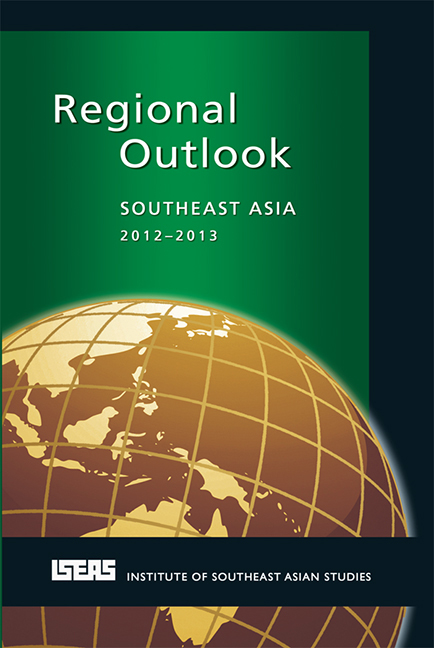Preface
Published online by Cambridge University Press: 21 October 2015
Summary
Twenty-one years ago, the Institute of Southeast Asian Studies inaugrated a topical, forward-looking annual publication intended to benefit businesspeople, diplomats, security specialists, professionals, journalists, and others with a stake in understanding regional developments. That publication has long since earned the admiration and trust of readers both in the region and outside Southeast Asia. They have come to rely on its well-informed and timely analysis of the near-term developments and trends likely to have the greatest impact on their work. The latest edition of Regional Outlook: Southeast Asia builds on this strong tradition. Its contents underscore ISEAS' commitment to offering stakeholders in regional affairs access to the thinking of leading specialists in the fields of politics, security, and economics, as those stakeholders seek to anticipate events in the year ahead.
The present volume scrutinizes the political and economic outlooks for each of the ten ASEAN member states in order to help readers foresee both the opportunities that these states will enjoy and the challenges that they will confront during 2012. It also offers a range of specially commissioned thematic articles. These articles address topics such as the relevance of “the Arab Spring” to Southeast Asia, America's effort to re-focus its attention on the region, imminent challenges to Southeast Asia's multilateralist regional architecture, and the breadth and depth of the development of civil society in the various Southeast Asian countries. Particularly worthy of mention are two articles on the range of issues and dynamics that define the important relationship between Southeast Asia and China. And additional thematic articles treat likely trends in food prices and supplies in the region during 2012, Thailand's prospects for remaining a global automotive hub, the economic implications of Myanmar's ongoing process of reform, and Malaysia's Islamic bond market. In turning to near-term trends on the political front in each of the ten members of ASEAN, contributions on the Philippines and Indonesia detail these large democracies' need to surmount persistent obstacles to the consolidation of their political orders.
- Type
- Chapter
- Information
- Regional OutlookSoutheast Asia 2012–2013, pp. vii - xPublisher: ISEAS–Yusof Ishak InstitutePrint publication year: 2012

